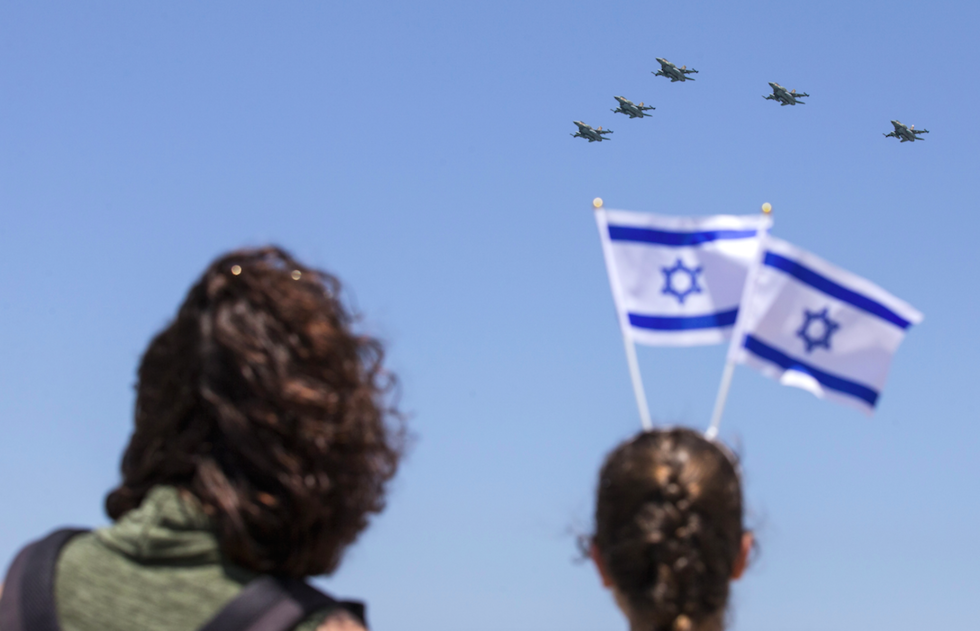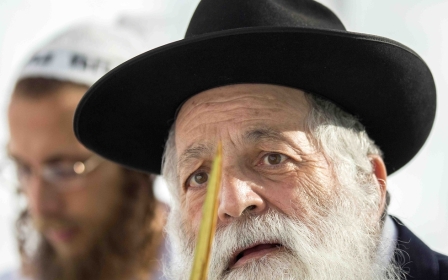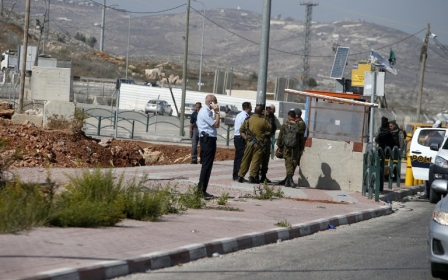Israel bombs Gaza as Lieberman says next war 'will be the last'

Israel's air force hit a Hamas post in the Gaza Strip on Monday after a rocket was fired from the Palestinian enclave toward Israel, the military said.
There were no initial reports that the rocket caused any casualties.
"A rocket was fired at southern Israel from the Gaza Strip," an army statement said, but "no rockets hit Israeli territory".
Israeli public radio said it was believed the rocket fell short and landed within Gaza, which is run by Palestinian movement Hamas.
"In response to the attack Israel Air Force aircraft targeted a Hamas military post in the northern Gaza Strip," the army said.
Hamas officials said there were no casualties in the attack on the post, at Beit Hanoun, near the border with Israel.
Israel and Palestinian militants in Gaza have fought three wars since 2008 and there are frequent flare-ups along the border.
On Monday Israel's far-right defence minister, Avigdor Lieberman, told a Palestinian newspaper Israel's next war in Gaza would be its last "because we will completely destroy them".
Lieberman however said he had no intention of starting a new war in Gaza, which would be the fourth since 2008.
He urged Palestinians to pressure Hamas to "stop your crazy policies".
"As minister of defence, I would like to clarify that we have no intention of starting a new war against our neighbours in the Gaza Strip or the West Bank, Lebanon or Syria," he said in the interview with Jerusalem-based Al-Quds newspaper.
"But in Gaza, like the Iranians, they intend to eliminate the state of Israel... If they impose the next war on Israel, it will be their last. I would like to emphasise again: It will be their last confrontation because we will completely destroy them."
Lieberman is part of what is seen as the most right-wing government in Israeli history, with several prominent members of Prime Minister Benjamin Netanyahu's coalition openly opposing a Palestinian state.
But while known as a security-minded hardliner, Lieberman believes in a two-state solution to the conflict based on land swaps.
He reiterated that position in the interview, saying he sees the main settlement blocks in the occupied West Bank remaining part of Israel under a final peace deal.
Lieberman, who took office in May, also criticised Palestinian President Mahmoud Abbas, accusing him of failing to make tough compromises that could lead to peace.
He predicted Abbas would lose if elections were held, with polls showing most Palestinians would like the 81-year-old to resign.
Such elections could lead to Hamas taking power in the West Bank, where Abbas's secular Fatah party currently dominates, but Lieberman said he believed a different outcome was possible.
"There are enough sensible people in the (Palestinian Authority) who understand the situation and know if there is a choice to make between Hamas and Israel, they think partnering with Israel will be better for them," he said.
Lieberman has recently spoken of trying to bypass Palestinian leaders and reach out directly to communities, and his interview appeared to be part of that effort.
Al-Quds was heavily criticised on social media by Palestinians who say it should not have agreed to an interview with an Israeli official as it amounted to sanctioning "normalisation" with an occupying power.
Before taking over as defence minister, Lieberman made a series of controversial statements, including one directed at Ismail Haniya, Hamas's leader in the Gaza Strip.
Lieberman said he would give Haniya 48 hours to hand over two detained Israeli civilians and the bodies of soldiers killed in a 2014 war "or you're dead".
He has since backed off such statements and said he is committed to "responsible, reasonable policy".
Middle East Eye propose une couverture et une analyse indépendantes et incomparables du Moyen-Orient, de l’Afrique du Nord et d’autres régions du monde. Pour en savoir plus sur la reprise de ce contenu et les frais qui s’appliquent, veuillez remplir ce formulaire [en anglais]. Pour en savoir plus sur MEE, cliquez ici [en anglais].




